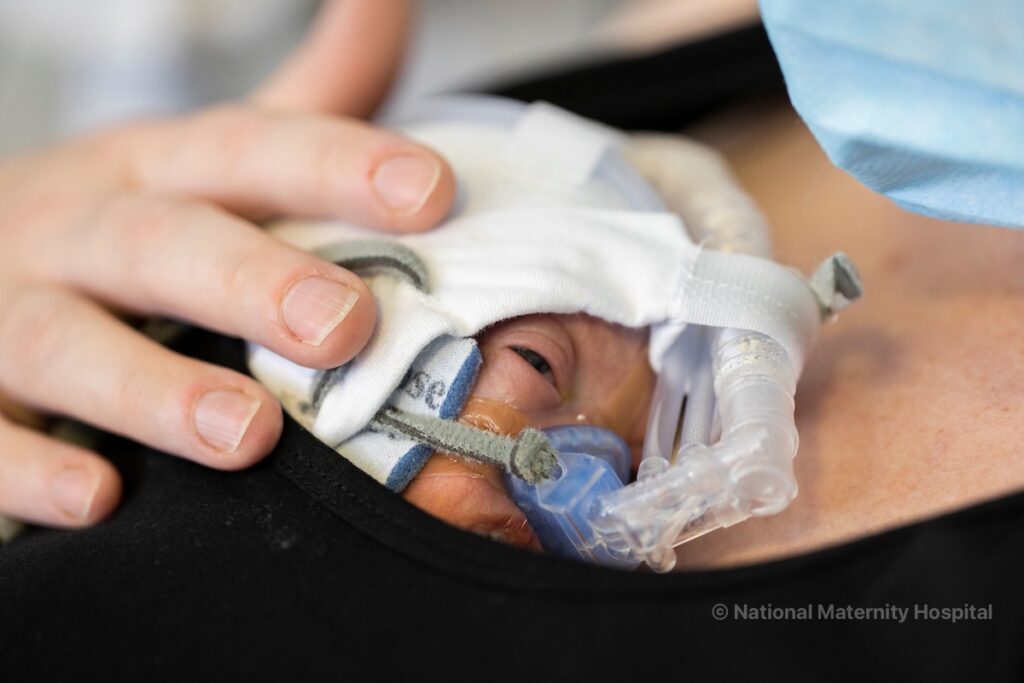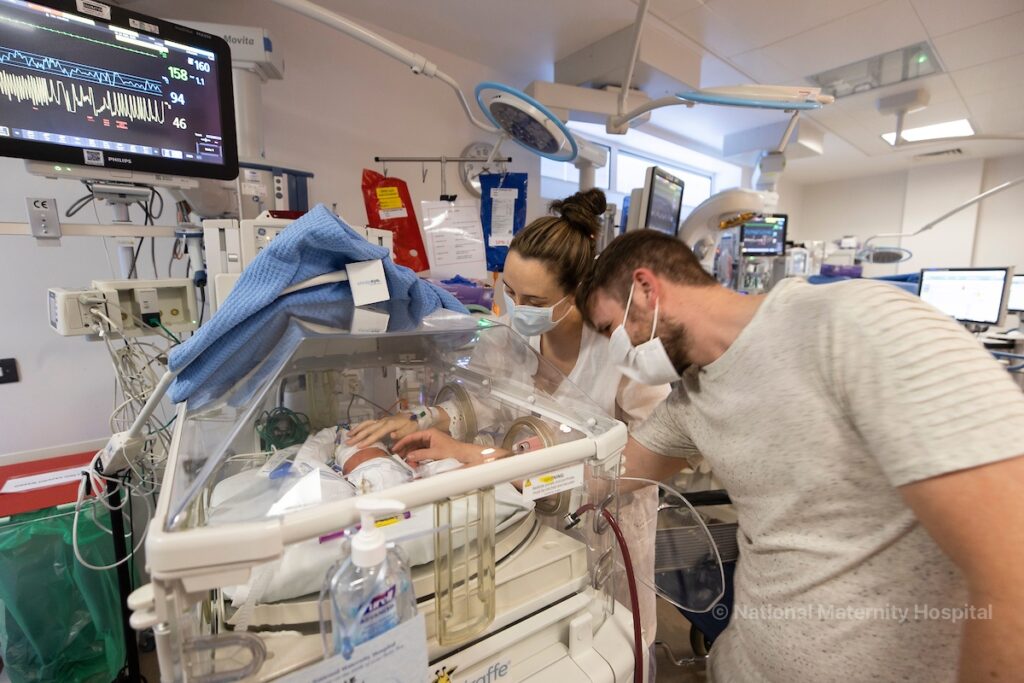Care and Support
Partner support
As a partner, you have an important role to play in supporting your child’s development. Newborn babies are born ready to connect with both their parents. However, when your baby is in the neonatal unit, you might feel you have to push aside your feelings to be strong and supportive, while holding yourself and everyone else together. You might be excited about becoming a parent but find that you are torn between your concerns for your baby and your partner’s health. You might feel like you have ‘lost control’, that your baby has been taken away from you, or that you can’t cope. You may feel pulled between responsibilities at home – which may include looking after your other children, being in the hospital, dealing with work and being the information link with extended family.

Some partners push their feelings away or go back to work as a way of coping. You may have limited leave and often have to work throughout your baby’s hospital stay. Sometimes partners can end up getting less emotional support than mums. You may worry about your baby and your partner.
You need to know that acknowledging your emotions and needs is a healthy thing to do. It is important to take time to think about your feelings and needs. It is good to take some time for yourself, have a chat or walk with a friend, a run, or a coffee. Never feel left out of your baby’s care, and let the team looking after your baby help you to learn how to look after your new baby. It is okay to ask for and to accept help. Remember, the team looking after your baby are always happy to talk with you about any questions or concerns you may have, so please ask.
Getting involved in your baby’s care
- The earlier you hold your baby and get involved in their care, the sooner you are likely to feel affection and love for your baby. A close relationship between you and your baby can help you feel better about yourself and help you to be better able to cope. Being involved and understanding your baby’s care will give you back a sense of being in control.
- Daily care tasks with your baby such as mouth care, nappy changes and skin-to-skin contact can help you build a relationship with them. Skin-to-skin contact, also known as kangaroo care, (see Kangaroo Care LINK to ‘Kangaroo Care’) between you and your baby is a great way to bond with your baby and to start feeling connected. Even if you can’t hold your baby, you might still be able to touch them gently in the incubator. As your baby gets older, you might want to talk, read a book, or sing to them. See ‘Getting to know your baby’.
- Spending time in the neonatal unit with your baby is good for baby’s development and is the best way to build up your relationship with them. Look into whether your workplace has any leave arrangements in place that allow you to take some extra time off.

Parents visiting their new baby in NICU
Things you can do for your partner
- If your partner cannot get to the neonatal unit in the first few days, you might like to take a photo or video of your baby to show to your partner after the birth. Hearing and seeing your baby can help your partner feel a bit better and more connected.
- Your partner may worry a lot and may need extra support and understanding. Be patient. Their fears, pain and tiredness may induce stress. Changing hormones after pregnancy can make new mums emotional and moody.
- If your partner is breastfeeding, you can help by setting up the breast pump, getting the bottles ready, making sure the breast milk is stored correctly and when home, taking it to the hospital, so that it is ready when your baby needs it. Some partners can feel left out when mums are breastfeeding, so by helping in this way, you can become an important part of this process.
- Encourage your partner to take care of herself. She may not be getting enough rest, or eating or drinking enough. Encourage her to eat her meals and keep well hydrated. Offer to stay with your baby so she can take some time for herself.
- Some mums need reassurance. Your partner may feel responsible for and guilty about your baby’s condition. If she feels severe guilt, discuss it, and encourage her to talk to her nurse or doctor.
- If you go back to work, any amount of time you can spend in the neonatal unit is still good for your baby, your partner and you. Being with your partner in the neonatal unit can help her feel more confident. Your support can boost her wellbeing and mental health and can support her relationship with your baby and with you.
- Having a premature baby can put strain on your relationship with your partner. Talk openly about what is happening for both of you. It can also bring you closer to your partner as you go through the experience together. Many couples find that their relationship plays a big part in helping them cope with the experience of having a preterm baby. Good communication is important.
